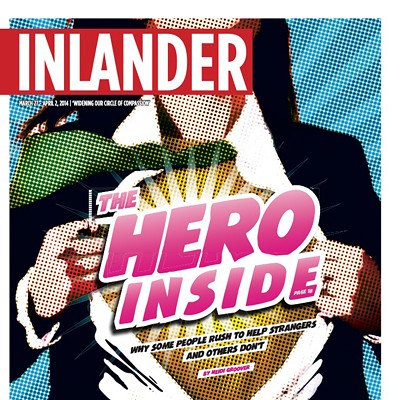When David Hay saw the flashing lights of a cop car in his rearview mirror, his first thought was that he might lose his job. He was driving with a suspended license, the result of traffic tickets he couldn’t afford to pay and a job he couldn’t get to by bus.
Hay was hit with the tickets back in 2006 and wasn’t able to pay them. Then, he spent six years in jail and when he got out — with the tickets, plus interest looming — he still had no way to pay them. So, he kept driving because he didn’t know how else to get to work every day.
“To get anything done, you have to be able to drive,” says Hay, 30, who worked for Washington and Idaho Railroad in Spangle when he was pulled over and cited late last year.
It’s not an uncommon situation in Washington, where some 300,000 people had their licenses suspended in 2011. But local advocates are hoping a case before the Washington Supreme Court could change that. In March, the court will hear from man who lost his driver’s license for failing to pay a ticket and will argue that it’s unconstitutional to fine people if they are unable to pay their tickets.
“This automatic suspension for failure to pay has a devastating effect on indigent drivers,” write the man’s attorneys, from Olympia-based Cushman Law Offices, in their opening brief for the case. “Since they have no means to pay the fine, they will never regain their licenses. They will be permanently cut off from employment opportunities that could provide the only legitimate means to pay the fine.”
If the court agrees, judges may have to prove that someone had the ability to pay and chose not to before their license can be suspended for a failure to pay.
“In today’s society, driving is not a privilege — it’s a necessity,” says Julie Schaffer, an attorney at Spokane’s Center for Justice, who is watching the case closely and helped author a report out this week on people who’ve lost their licenses.
As they await the court’s decision, there is some relief for people like Hays. The Center for Justice and the city prosecutor’s office run relicensing programs, which pull participants’ tickets from collections and get them on a payment plan — usually $25 a month — to start whittling away at their debt. They get their licenses back as they’re paying, rather than afterward, to allow them to continue working or looking for a job.
Participants also take traffic and budgeting classes to learn about traffic rules and how to manage their finances to keep up their monthly payments. Hays went through the center’s program and is paying off his debt. Without that, he says he would have owed something like $2,000.
The city’s program, unlike the center’s, turns away people with crimes against persons on their records. Still, it’s seen more than 6,500 participants, who’ve paid about $2.5 million to the city and county so far (though the total owed in traffic fines to counties in the region is close to $10 million, according to data from the city prosecutor’s office).
Spokane Municipal Judge Michelle Szambelan says the ability to pay should be a factor in how people are punished.
“Part of being a judge is listening and issuing a just decision based on the facts,” she says. “I don’t know how you could do that without listening to people.”



















